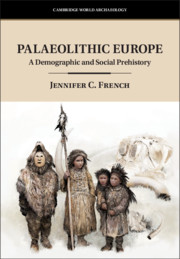Archaeologists have explained the spatiality and spread of traditions primarily in terms of conflict-free transfers of knowledge. This article critiques the sociospatial conceptualization of tradition implicit in many of these explanations and re-theorizes tradition as a relational process of symbolic conflict. Of particular concern are hierarchical approaches to traditional knowledge that set the more durable unconscious or ‘embodied’ elements of tradition apart from ‘symbolically invested practices’ and attribute to each a unique spatiality, with that of embodied tradition involving largely benign mechanisms of transmission. This article proposes instead that the spatiality of tradition is the outcome of continuous reflexive transformation of embodied traditional knowledge in contested social and symbolic relationships between groups. This transformation unfolds in conflict over the meaning, ownership, and value of symbolic inventories (knowledge, names, practices, symbols) within social fields. Ethnographic and archaeological data are used to argue that strategies of symbolic conflict propel traditions along the relational pathways of fields.


